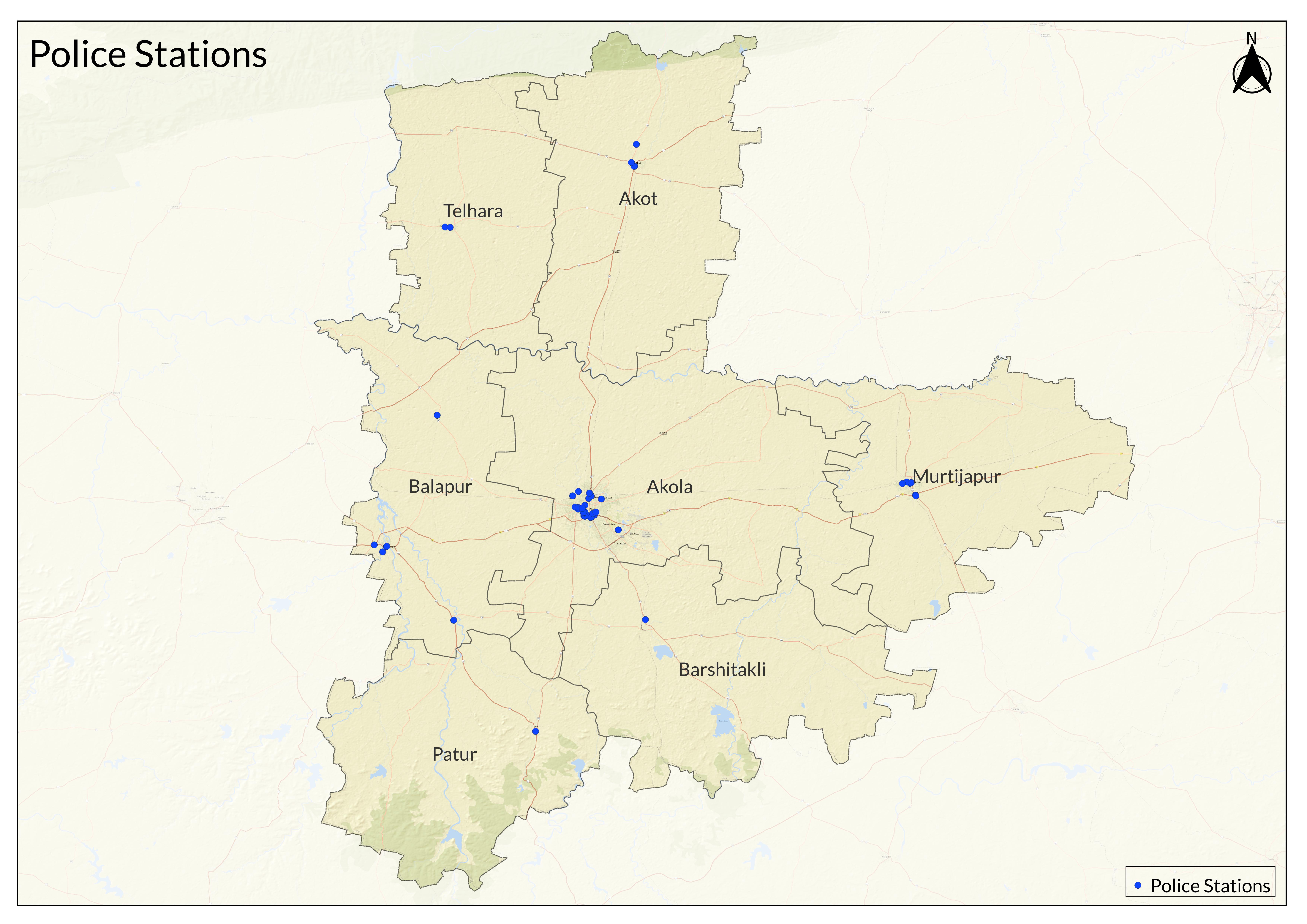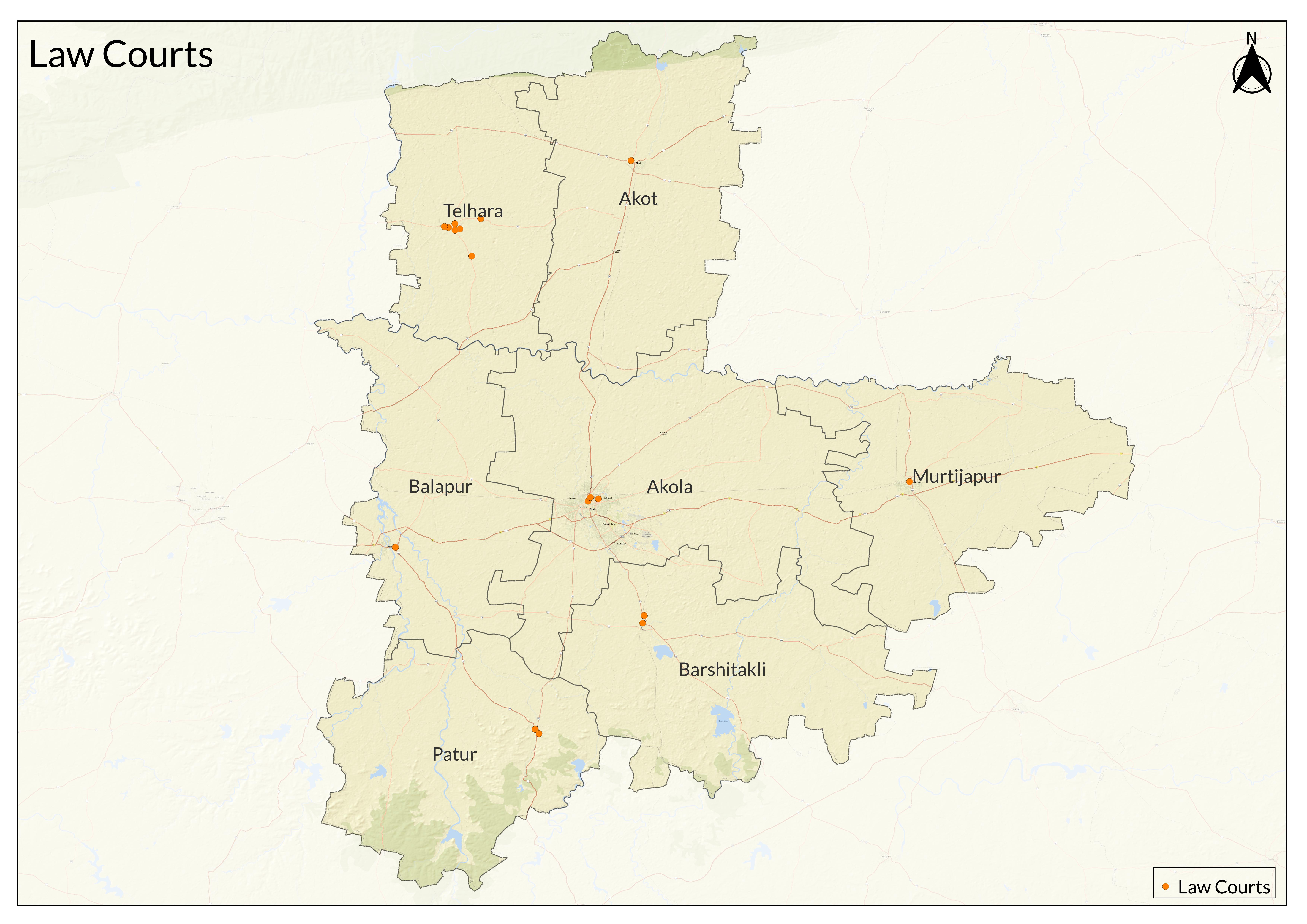Contents
- Jail System
- Community Perception of Safety
- Graphs
- Criminal Cases
- A. Cognizable Crimes under the Indian Penal Code (IPC)
- B. Select Offenses affecting the Human Body
- C. Select Offenses against Property
- D. Select Offenses against Public Tranquility
- E. Select Offenses relating to Documents and Property Marks
- F. Select Miscellaneous Crimes under the IPC
- G. Cognizable Crimes under Special and Local Laws (SLL)
- H. Select Offenses under Special and Local Laws (SLL)
- I. Crimes against Women
- J. Select Cases of Crimes against Women
- K. Cyber Crime
- L. Select Cases of Cyber Crime
- M. Cases of Fraud
- N. Reported Crimes against Women and Children
- Police Infrastructure and Workforce
- A. Police Infrastructure
- B. Police Officers and Employees
- Judicial System
- A. Number of Functioning Courts
- B. Judge Positions
- C. Cases Resolved
- D. Number of Original Cases Resolved
- E. Number of Appeal Cases Resolved
- Sources
AKOLA
Police & Judiciary
Last updated on 5 November 2025. Help us improve the information on this page by clicking on suggest edits or writing to us.
Akola district comprises 25 police stations and 9 outposts, ensuring law enforcement coverage across urban and rural areas. The City Subdivision includes five police stations: City Kotwali, Ramdaspeth, Borgaon, Barshitakli, and Pinjar. The Rural Subdivision consists of multiple police stations distributed across tehsils, including Akot, Balapur, Murtizapur, Patur, and Telhara, among others. These police stations play a crucial role in maintaining law and order across the district’s urban and rural areas.

The police in Akola District may be colloquially referred to as "mama," "kaka," or "police wale bhaiya" among the locals. Colloquially, people say Bhau to the police, and only if it is their relatives, so they are called Mama or Kaka.
Jail System
Historically, the jail is notable for housing Dr. Keshav Baliram Hedgewar, the founder of the Rashtriya Swayamsevak Sangh (RSS), during India's independence movement. In 1930, Dr. Hedgewar was sentenced to nine months of rigorous imprisonment for his participation in the Forest Satyagraha, a protest against British colonial policies.
The prison's history also includes the incarceration of freedom fighter Jagdev Sitaram Wankhade. Born in 1920 in Hiwarkhed, Akola district, Wankhade actively participated in the Quit India Movement of 1942. His involvement in anti-British activities led to his arrest and a one-month imprisonment in the Akola District Central Jail from 8 September to 7 October, 1942. The Maharashtra government later honored him with a certificate recognizing his contributions to India's freedom struggle.
Community Perception of Safety
According to residents, the district is generally considered safe for women and children, with minimal late-night activity as the area tends to quiet down by 10 or 11 pm. For added security, a specialized squad called ‘Damini Pathak’, composed entirely of female police officers, operates in the district. These officers are equipped with scooters, four-wheelers, and a designated uniform provided by the government to enhance their visibility and effectiveness in ensuring public safety.
Graphs
Criminal Cases
Police Infrastructure and Workforce
Judicial System

Sources
Amrit Mahotsav. District Repository Detail. amritmahotsav.nic.in.https://amritmahotsav.nic.in/district-reopsi…
Last updated on 5 November 2025. Help us improve the information on this page by clicking on suggest edits or writing to us.